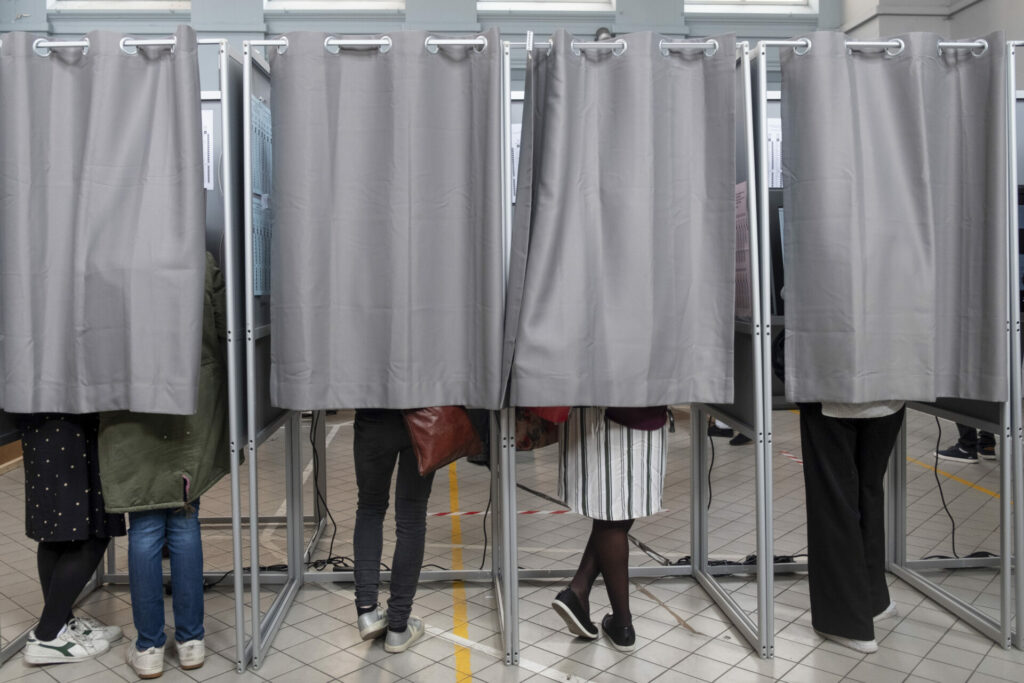A new political party in Belgium – called "Blanco" – is aiming to stand up throughout the country with only one point on their agenda: blank votes should lead to empty seats in the Federal Parliament.
While turning up to vote is mandatory for all Belgian adults, actually voting is not: people are allowed to cast a blank vote, signalling that they are not willing to give their vote to any of the parties on the ballot. In 2019, more than one million Belgians (nearly 10% of the country's total population) refused to vote and did so either by not showing up at all or casting a blank vote or an invalid one.
While those blank and invalid votes are still counted, they are not taken into account in the distribution of seats between the parties in the Federal Parliament, meaning hundreds of thousands of votes are not represented – which the founders of the new Blanco party call "undemocratic."
Therefore, the party has only one agenda item: to change the electoral system in such a way that voters can vote for an empty seat in Parliament. Before they succeed, they want to stand for election to represent that empty seat themselves.
Empty seats
"We will be present in the Chamber and abstain from every vote that is cast there," one of the founders, Laurent Ryckaert, told VRT. "We will also not participate in committees and only vote for our own bill."
"Once our goal has been achieved, the Blanco party no longer has a reason to exist, we will leave Parliament immediately and our seat there will effectively remain empty. We will no longer submit electoral lists and our elected officials will look for other work," he added. "We have to disappear as soon as possible."
The two founders, marketeer Laurent Ryckaert and tax specialist Raf Lens, have no political affiliation and have never held a party membership card. They did not even know each other until two years ago, when their common goal of giving blank voters a face united them on Twitter. The aim is to hold up a mirror to the Members of Parliament, said Lens: "look, these are all the people you do not reach."
Ryckaert explained that he has not been able to identify with any existing party for a long time. "I want to protest against the current political culture, but I do not want to do that by voting for an (extreme) party that does not deserve my support."
Tweet translation: "Dissatisfaction = Vote Vlaams Belang? No. A vote for VB supports their ideas and programmes. No problem if this is your choice, but do not call it a protest vote. That is what PartijBlanco.be is for now."
So far, Blanco has 13 candidates and they also want to effectively stand in the federal elections – but it is not yet an official party, as they need 77 candidates: seven for each of the 11 electoral districts.
However, to actually end up on the ballot paper, Blanco must also collect enough signatures in each constituency. For the Flemish constituencies and the Brussels-Capital Region constituency, they need 500 signatures each. To stand for election nationwide, they must have 4,700 in total.
Related News
- How will Belgians vote at the 2024 elections?
- Online and postal voting will not be introduced in 2024 Flemish elections
- 'Historic mistake': don't scrap requirement to turn up to vote, experts warn
To win a seat, they must also pass the electoral threshold by obtaining 5% of the valid votes in a constituency. Even if they do succeed, however, the question remains how they will change the electoral law; a constitutional amendment is required for this, and two-thirds of the House must approve it. "We need to explore that with ethicists, philosophers and constitutional specialists."
Therefore, the elected MPs for Blanco would not give up their parliamentary wages, but will simply use them alongside donations to finance the party. "The subsidies received only serve one project: changing the Constitution. When that goal is achieved, the balance of the party treasury will be donated to charity."

